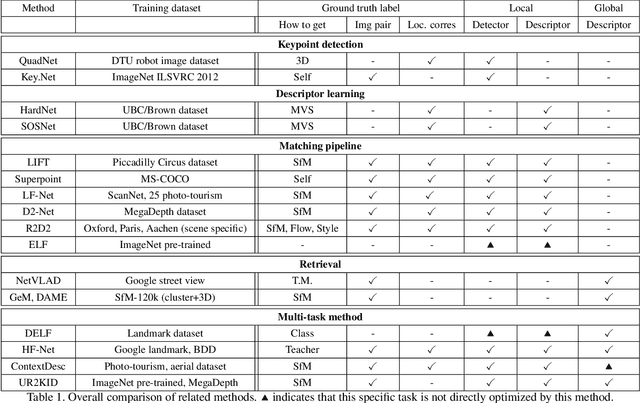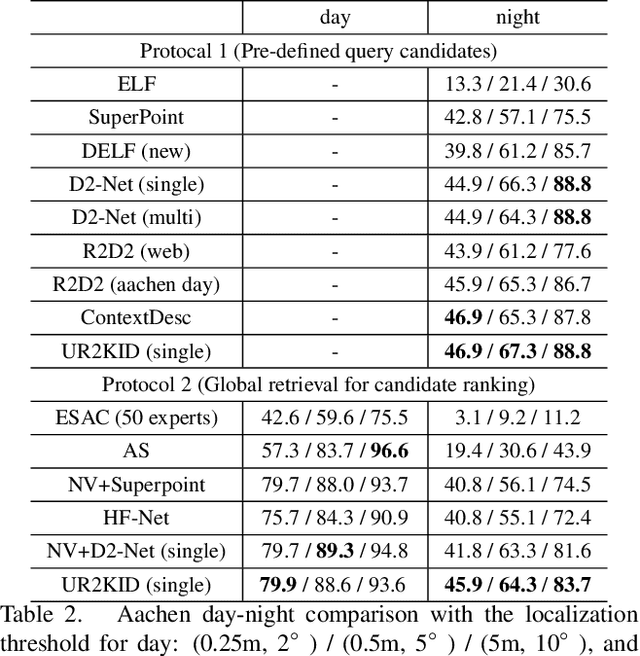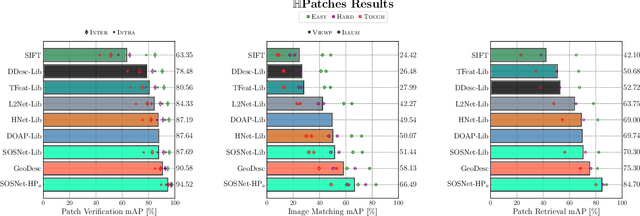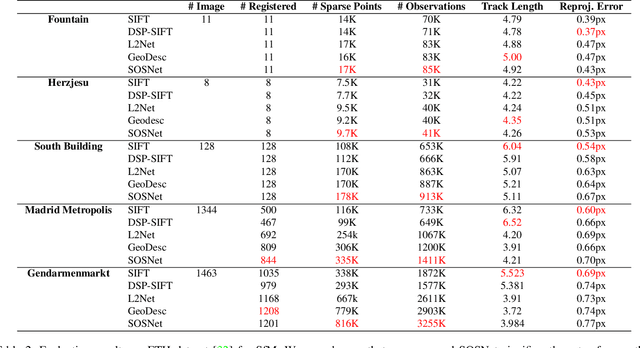Huub Heijnen
UR2KiD: Unifying Retrieval, Keypoint Detection, and Keypoint Description without Local Correspondence Supervision
Jan 20, 2020



Abstract:In this paper, we explore how three related tasks, namely keypoint detection, description, and image retrieval can be jointly tackled using a single unified framework, which is trained without the need of training data with point to point correspondences. By leveraging diverse information from sequential layers of a standard ResNet-based architecture, we are able to extract keypoints and descriptors that encode local information using generic techniques such as local activation norms, channel grouping and dropping, and self-distillation. Subsequently, global information for image retrieval is encoded in an end-to-end pipeline, based on pooling of the aforementioned local responses. In contrast to previous methods in local matching, our method does not depend on pointwise/pixelwise correspondences, and requires no such supervision at all i.e. no depth-maps from an SfM model nor manually created synthetic affine transformations. We illustrate that this simple and direct paradigm, is able to achieve very competitive results against the state-of-the-art methods in various challenging benchmark conditions such as viewpoint changes, scale changes, and day-night shifting localization.
SOSNet: Second Order Similarity Regularization for Local Descriptor Learning
Apr 10, 2019



Abstract:Despite the fact that Second Order Similarity (SOS) has been used with significant success in tasks such as graph matching and clustering, it has not been exploited for learning local descriptors. In this work, we explore the potential of SOS in the field of descriptor learning by building upon the intuition that a positive pair of matching points should exhibit similar distances with respect to other points in the embedding space. Thus, we propose a novel regularization term, named Second Order Similarity Regularization (SOSR), that follows this principle. By incorporating SOSR into training, our learned descriptor achieves state-of-the-art performance on several challenging benchmarks containing distinct tasks ranging from local patch retrieval to structure from motion. Furthermore, by designing a von Mises-Fischer distribution based evaluation method, we link the utilization of the descriptor space to the matching performance, thus demonstrating the effectiveness of our proposed SOSR. Extensive experimental results, empirical evidence, and in-depth analysis are provided, indicating that SOSR can significantly boost the matching performance of the learned descriptor.
 Add to Chrome
Add to Chrome Add to Firefox
Add to Firefox Add to Edge
Add to Edge